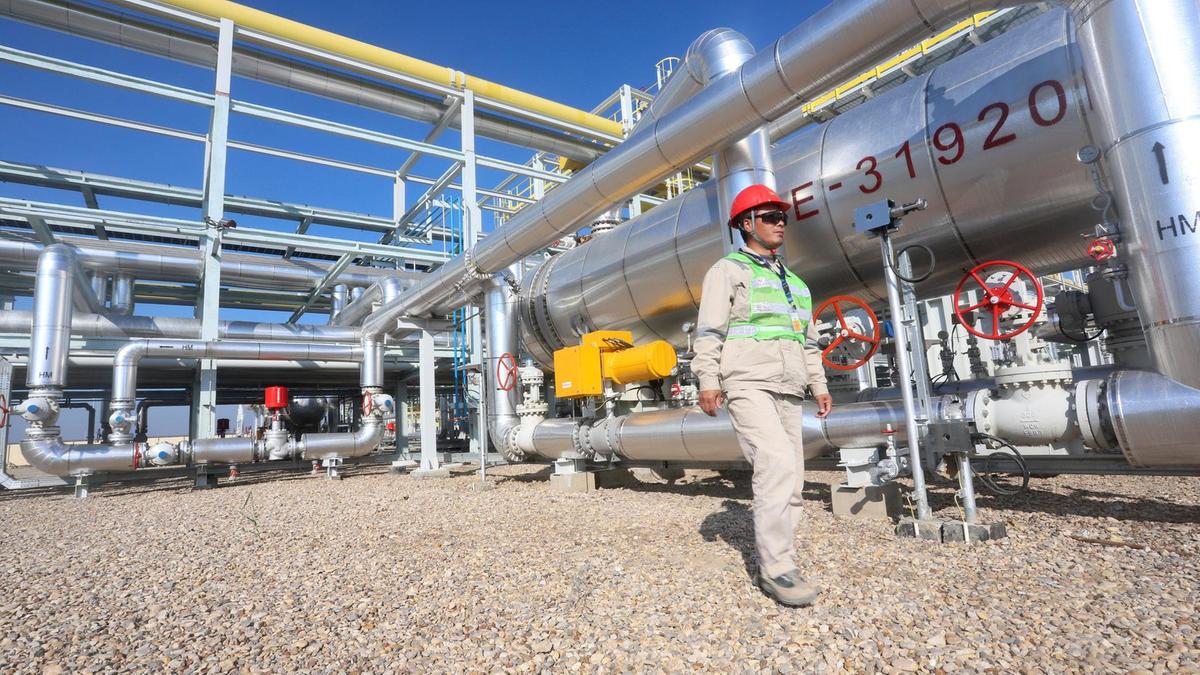Iraq's GDP to grow 4.1% in 2019 thanks to oil prices, Moody's says

Iraq’s economy is forecast to grow further in 2019 to a three-year high due to stronger oil prices that are expected to average $75 a barrel, Moody’s Investors Service said.
Gross domestic growth will accelerate to 4.1 per cent next year from 2.8 this year, the highest level since the 13.1 per cent economic expansion in 2016, the ratings agency said in a report on Thursday.
“Higher oil prices and output, as well as an expected increase in investment spending because of the improved security situation, have bolstered Iraq's economic outlook,” said the report. “However, oil price volatility and potential further social unrest that could weaken Iraq's economic infrastructure, as well as Iraq's vulnerability to environmental risks, exacerbated by outdated infrastructure are continued risks to growth.”
Iraq, the second-largest oil producer in Opec that pumped around 4.6 million barrels of oil per day in November, is benefiting from a rebound in oil prices this year after a three-year slump that sent prices to less than $30 a barrel in the first quarter of 2016. Improvement in security has also helped boost economic activity in the country.
Iraq’s economy, which shrank 2.1 per cent in 2017, is projected to expand 1.5 per cent in 2018 and 6.5 per cent in 2019, "largely from continuing reconstruction efforts", according to the International Monetary Fund.
Stronger oil prices have helped Iraq lower its public debt to GDP ratio, which doubled to 66 per cent between 2013 and 2016, and narrow its fiscal deficit which peaked at 14.3 per cent of economic output in 2016, the report said.
“Higher oil prices since mid-2017 have reversed the deterioration in the government's fiscal position and boosted Iraq's foreign exchange reserves (including gold) to more than $58 billion at the end of September 2018,” the report said.
Iraq is projected to swing to its first fiscal surplus this year since 2012 compared with 1.6 per cent of GDP deficit in 2017.
“We expect a small fiscal surplus of around 0.4 per cent of GDP in 2018, though larger than planned spending increases during 2018 have prevented a more significant fiscal improvement,” Moody’s said.
Iraq relies on oil income for about 80 per cent of government revenue, a figure that peaked at 94 per cent in 2014 and remains one of the highest in the region. Public sector salaries and pensions represented about 50 per cent of total government expenditure or 20 per cent of GDP in 2016.
“While higher oil prices improve the government's fiscal performance, they also increase the risk of complacency on reforms aimed at decreasing vulnerability of Iraq's fiscal position to declines in oil prices,” Moody's said. “Public sector compensation has been the fastest-growing expenditure item in the government's budget. The ministries of education, defence and interior are the largest employers.”